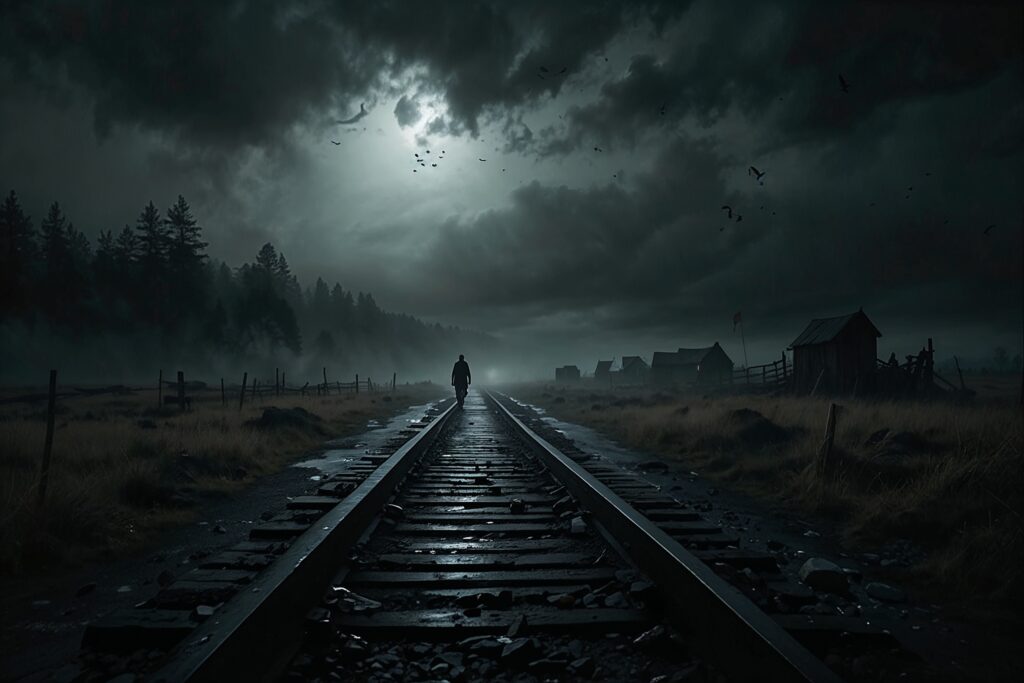The United Nations is as useless as tits on a bishop and it’s high time the United States withdrew from the U.N. and kick the entire corrupt institution out of New York City, demolish the building, and salt the earth where it formerly stood.
Anyone still harboring romantic notions about international cooperation probably believes in tooth fairies and functional democracy, and likely doesn’t read my stuff anyway, but just in case you do, we need to have a little chat about the United Nations, that sprawling, septuagenarian monument to humanity’s capacity for self-deception that squats like a modernist toad on Manhattan’s East Side.
Dig, if you will (and you must, because the alternative is madness), an organization conceived in the post-apocalyptic hangover of World War II, birthed by men who’d witnessed industrial-scale human barbarity and thought, “Hey, what this world needs is more committees!” The UN emerged from this historical moment like some beautiful, naïve child stumbling into a den of wolves wearing three-piece suits and diplomatic immunity. Except now, 79 years later, that child has grown into a grotesquely bloated bureaucratic hydra that couldn’t organize a coherent response to a toilet paper shortage, let alone genocide.
The Art of Failing Spectacularly: A Masterclass in International Incompetence
The UN’s track record over the past five decades reads like a satirical novel written by someone with an exceptionally dark sense of humor and an intimate understanding of institutional paralysis. We’re talking about failures so profound, so systemically comprehensive, that they transcend mere incompetence and enter the realm of performance art.
Consider Rwanda, 1994: While nearly 800,000 human beings were being systematically slaughtered – that’s roughly one person every eleven seconds for one hundred days straight, a fact that should make your stomach drop into your shoes and stay there – the UN responded with the kind of bureaucratic hand-wringing that would make Pontius Pilate look decisive. General Romeo Dallaire, a man whose desperate cables from the ground read like dispatches from hell itself, begged for intervention while UN headquarters debated the semantic implications of the word “genocide.” Because apparently, when people are being hacked to death with machetes, the real priority is maintaining definitional precision.
The UN’s response was to reduce the peacekeeping force. I’m not making this up – you couldn’t make this up, because reality has surpassed the darkest satirical imagination. They literally pulled troops out while the killing accelerated, as if the solution to a house fire is fewer firefighters.
Then there’s Srebrenica, where UN peacekeepers – and I use that term with all the irony I can muster – stood by with their blue helmets and their impotent mandates while Bosnian Serb forces systematically murdered over 8,000 men and boys in what was designated a UN “safe area.” The term “safe area,” it turns out, was about as meaningful as a chocolate teapot or a campaign promise. The peacekeepers watched – literally watched – as buses loaded with condemned men drove past their checkpoints toward mass graves.
These aren’t bureaucratic oopsies or administrative fuck-ups. These are moral catastrophes of such magnitude that they should have triggered some kind of institutional self-immolation, a collective organizational seppuku performed in shame before the world’s television cameras.
The Human Rights Council: A Comedy of Errors Written in Blood
Speaking of institutional comedy, let’s examine the UN Human Rights Council, an entity so completely divorced from its stated purpose that it makes reality TV look authentic. This is a body where China, Cuba, and Saudi Arabia – nations whose understanding of human rights extends roughly as far as “humans have the right to obey the state” – sit in judgement of actual democracies like they’re moral authorities instead of, you know, oppressive regimes with track records that would make Orwell’s Big Brother take notes.
Between 2006 and 2022, this moronic body passed fully one-third of its resolutions condemning Israel while maintaining an almost Buddhist-like silence regarding Syria (where Assad has been conducting his own masterclass in creative population reduction), North Korea (the hermit kingdom that makes medieval feudalism look progressive), and Eritrea (which has achieved the remarkable feat of making its citizens nostalgic for Italian colonialism).
This isn’t selectivity; it’s moral blindness so complete it borders on the pathological. It’s like having a fire department that exclusively responds to reports of birthday candles while ignoring five-alarm fires.
Oil-for-Food: Or How to Monetize Humanitarian Disaster
The Oil-for-Food Program – and doesn’t that name just roll off the tongue, like “Arbeit macht frei” or “I’m from the government and I’m here to help” – represents perhaps the UN s most spectacular achievement in transforming humanitarian aid into a corruption buffet. Between 1995 and 2003, approximately $10 billion disappeared into some sort of black hole.
The program, ostensibly designed to provide humanitarian relief to Iraqi civilians suffering under sanctions, instead became Saddam Hussein’s personal ATM machine, complete with UN officials acting has helpful tellers. Again, this wasn’t mere administrative incompetence – this was systematic corruption so brazen it would make a Biden blush.
And let’s not forget the sexual abuse scandals that have plagued UN peacekeeping operations like a particularly virulent strain of institutional syphilis. In Haiti, the Central African Republic, and elsewhere, peacekeepers – the men supposedly sent to protect vulnerable populations – instead exploited them with the kind of impunity typically reserved for Somali warlords.
The UNRWA Files: When Humanitarian Aid Meets Terrorist Infrastructure
But if you really want to understand the depths of UN dysfunction, you need to look at the UNRWA scandal surrounding the October 7, 2023 Hamas attack – an event that revealed the organization’s relationship with terrorism to be less “unwitting accomplice” and more “enthusiastic co-conspirator.”
Israel intelligence uncovered evidence so damning it reads rather like a rejected screenplay from a movie about institutional corruption. UNRWA employees – people whose paychecks come from international humanitarian funds – didn’t just look the other way while Hamas planned its attack; they actively participated. A school counselor helped kidnap Israelis. An elementary school teacher joined the assault on Re’im. Another teacher spent the night before the attack equipping himself with anti-tank weapons, presumably not for use in lesson plans about conflict resolution.
These weren’t isolated incidents of individual radicalization; this was systematic infiltration so complete that UNRWA facilities were being used to store weapons and harbor hostages. Emily Damari, held captive for 15 months, reported being detained in multiple UNRWA facilities. The Israeli Defense Forces found assault rifles, grenades, and missiles hidden in UNRWA institutions, plus a tunnel beneath UNRWA’s main Gaza headquarters complete with computer servers and industrial batteries – because apparently, when you’re running a humanitarian organization, you need a secret underground lair.
And what was the UN’s response to these revelations? A half-assed investigation that concluded nine staff members “may have been involved” while admitting they couldn’t independently verify the evidence because it remained in Israeli custody. This is roughly the equivalent to investigating a bank robbery by asking the robbers if they did it and then shrugging when they don’t provide you the security footage.
The Case for Institutional Euthanasia
Here’s where things get interesting – and by interesting, I mean “apocalyptically obvious.” The United States, which provides roughly 25% of the UN’s regular budget and approximately $18 billion annually to the broader UN system, is essentially funding its own diplomatic humiliation while subsidizing terrorism through organizations like UNRWA.
We’re paying over $18 billion a year – yep, billion with a “B” – to maintain an organization that has achieved the remarkable triple crown of being simultaneously ineffective, corrupt, and actively harmful to American interests. This is like paying a contractor to burn down your house while charging you extra for the matches.
The security implications of hosting this carnival of dysfunction in New York City are particularly delicious. We’re providing diplomatic immunity to representatives of regimes that would cheerfully see America reduced to radioactive ash, then expressing surprise when they engage in espionage and other recreational forms of national hostility.
A Modest Proposal for Urban Renewal
The solution is as elegant as it is overdue: withdraw American funding, revoke the UN’s lease on Manhattan real estate, and dismantle its headquarters. Not out of petty spite – though deep spite would be entirely justified – but as a statement of moral clarity that transcends diplomatic niceties.
The current UN building should be razed through explosion. One B2 strike will be sufficient. Then the leaders of the five main religions should exorcise and bless the grounds as the rubble is cleared. Once that is done, that piece of earth should be salted so that nothing may grow there, like the Romans did to Carthage, except without the genocide and with better construction permits. Then perhaps it could be converted into something more useful – a shopping mall, a casino, or a memorial to complete institutional failure.
This isn’t about abandoning international cooperation; it’s about recognizing that the current system is so fundamentally broken that reform is impossible. You don’t fix a car that’s been totaled in a head-on collision with reality – you scrap it and start over.
Conclusion: The Twilight of Illusions
The United Nations has evolved from humanity’s great experiment in collective security into a monument to bureaucratic dysfunction, moral cowardice, and institutional corruption. Its failures aren’t unfortunate accidents; they’re predictable outcomes of an organization designed by committee to satisfy everyone while serving no one.
The time for pretending otherwise has passed. The time for hoping that somehow, magically, fundamental structural reform will emerge from an organization that can’t even reform its own humanitarian agencies has passed. The time for continuing to fund this elaborate performance of international cooperation while real crises unfold with deadly consequences has definitely passed.
What we need now is the kind of brutal honesty that recognizes when an institution has outlived any possible usefulness and become actively harmful to the values it was created to protect. The UN’s headquarters should be demolished not only in anger, but in acknowledgment – a concrete recognition that humanity deserves better than this expensive, ineffective theater of diplomacy.
Let the rubble serve as a reminder: good intentions, no matter how noble, are no substitute for competence, accountability, and moral courage. And sometimes, the most humanitarian thing you can do is put a failed institution out of its misery before it fails anyone else.
N.P.: “Hypnotic” – Dead Sara





